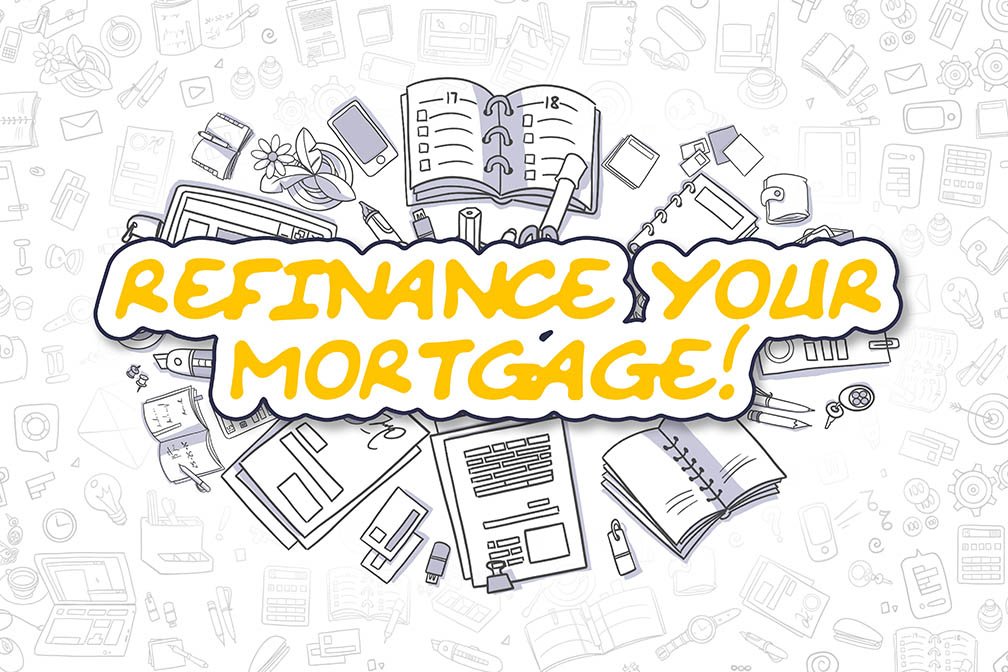 When you’re delving into the market in the hopes of finding your dream home, it’s likely you’ll come across the term debt-to-income ratio. This may not seem important at first, but your DTI is the key to determining the amount of money you can put into your home and just how much you should spend on a monthly basis. If you’re curious about what this means for you, here’s how to calculate it and how it can impact your mortgage.
When you’re delving into the market in the hopes of finding your dream home, it’s likely you’ll come across the term debt-to-income ratio. This may not seem important at first, but your DTI is the key to determining the amount of money you can put into your home and just how much you should spend on a monthly basis. If you’re curious about what this means for you, here’s how to calculate it and how it can impact your mortgage.
What’s Your DTI Ratio?
One of the best ways to determine whether or not a home is affordable for you is to first calculate your DTI ratio. To get this amount, add up all of your monthly payments including any credit card, loan and mortgage payments, and divide this amount by your gross monthly income. The amount you get is your DTI percentage and this will help to determine how much your monthly payment should be.
What Does Your DTI Mean?
Your DTI percentage helps to determine the amount of house you can afford on a monthly basis, and this is why it can be such a good way to help you find the right home. While a DTI of 25% or less is ideal, a DTI that rises above 43% may be hard to get financing for since there will be little room for error. When it comes to a higher debt load, approval may come down to what your credit history says about your financial health.
The Amount Of Home You Can Afford
It’s easy to be convinced that your dream home is for you, and worth the splurge, but investing in too much home on a consistent basis can lead to future financial difficulties. If you’re set on a home that has a high monthly payment, you may want to hold off until you’ve saved a larger down payment or revamp your budget so that you can make the investment work for you. It may also be worth continuing the housing search so that you have more flexibility to invest in education, travel or other things down the road.
Your DTI ratio may be unfamiliar now, but this can be a great save when it comes to determining how much home you can afford and what will stretch your limits.
 If you’ve decided to invest and have finally found your ideal home, it’s probably an exciting time for you and your family. But before the deal is sealed, there will be a closing meeting so that all of the loose ends can be tied up. If you want to be ready for closing and are curious what the final meeting will entail, here are a few things to be prepared for.
If you’ve decided to invest and have finally found your ideal home, it’s probably an exciting time for you and your family. But before the deal is sealed, there will be a closing meeting so that all of the loose ends can be tied up. If you want to be ready for closing and are curious what the final meeting will entail, here are a few things to be prepared for. You may be so busy with determining your debt-to-income ratio and deciding what kind of offer to make that closing costs have gotten lost in the mix, but it’s important to remember that finalizing your mortgage will cost you extra. While there’s no way to get around paying money to solidify your mortgage, there are a few steps you can take in order to make it more economical for you.
You may be so busy with determining your debt-to-income ratio and deciding what kind of offer to make that closing costs have gotten lost in the mix, but it’s important to remember that finalizing your mortgage will cost you extra. While there’s no way to get around paying money to solidify your mortgage, there are a few steps you can take in order to make it more economical for you. If you’re familiar with the real estate market, you’ve likely heard the term ‘refinancing’ and may be wondering what this can mean for your mortgage and your financial well-being. While refinancing can be a great benefit for those who are looking for a lower interest rate or a different mortgage type, here are the details on what it can offer and whether or not it will work for you.
If you’re familiar with the real estate market, you’ve likely heard the term ‘refinancing’ and may be wondering what this can mean for your mortgage and your financial well-being. While refinancing can be a great benefit for those who are looking for a lower interest rate or a different mortgage type, here are the details on what it can offer and whether or not it will work for you. There are so many details involved in the mortgage process that you may not be aware of what pre-approval is if you’ve just entered the market. However, pre-approval assesses your ability to make monthly mortgage payments and can be an important first step in the home-buying process. If you’re currently contemplating a home purchase, here’s why you may want to consider pre-approval first.
There are so many details involved in the mortgage process that you may not be aware of what pre-approval is if you’ve just entered the market. However, pre-approval assesses your ability to make monthly mortgage payments and can be an important first step in the home-buying process. If you’re currently contemplating a home purchase, here’s why you may want to consider pre-approval first. When you’ve been in your home for a while and have established a certain amount of equity, it can be a good feeling to know that you have an investment you can count on. However, with changing weather patterns you may be afraid of a natural disaster striking and what it could mean for your financial well-being. If you’re curious about how this can impact your mortgage, here are a few things to consider.
When you’ve been in your home for a while and have established a certain amount of equity, it can be a good feeling to know that you have an investment you can count on. However, with changing weather patterns you may be afraid of a natural disaster striking and what it could mean for your financial well-being. If you’re curious about how this can impact your mortgage, here are a few things to consider.